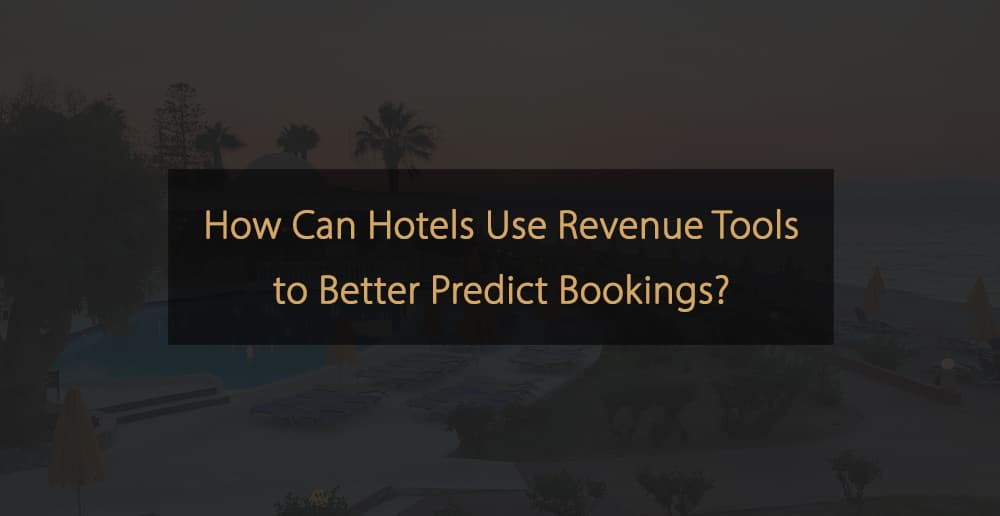Question pour notre panel d'experts en gestion des revenus :
Quels sont les défis les plus courants rencontrés lors de la mise en œuvre de stratégies de tarification dynamique dans le secteur de l'hôtellerie et comment les surmonter ? (Question proposée par Diego Fernández Pérez De Ponga)
Groupe d'experts de l'industrie
Notre panel d'experts de l'industrie est composé de professionnels de l'industrie de l'hôtellerie et du voyage. Ils ont des connaissances complètes et détaillées, une expérience de la pratique ou de la gestion et sont avant-gardistes. Ils répondent à des questions sur l'état de l'industrie. Ils partagent leurs points de vue sur des sujets tels que la gestion des revenus, le marketing, les opérations, la technologie et discutent des dernières tendances.
Notre panel d'experts en gestion des revenus
- Tamie Matthews – Conseillère en revenus, ventes et marketing, RevenYou
- Kathryn Baker – Directrice de l'exploitation, TCRM (Gestion des revenus personnalisés)
- Pablo Torres – Consultant hôtelier
- Niko Krauseneck – Fondateur, RevenueRebel
- Massimiliano Terzulli – Consultant en gestion des revenus, Franco Grasso Revenue Team
- Mariska van Heemskerk – Propriétaire, Revenue Management Works
- Heiko Rieder – Vice-président senior commercial et distribution, Step Partners Europe
- Pallavi Gaonkar – Directeur des revenus, Ayada Maldives
- Posez une question à notre panel
- Rejoignez notre panel d'experts
Chez RevenYou, nous collaborons avec un large éventail d'hébergeurs et, selon les fonctionnalités du PMS, l'une des premières mesures que nous mettons en œuvre est la tarification dynamique. C'est un moyen rapide et très efficace de générer une croissance des revenus en peu de temps.
Les défis auxquels nous pouvons faire face sont :
- Trouver des données exploitables pour guider notre processus décisionnel. Si le PMS ne fournit pas de données exploitables, nous devons nous tourner vers le marché et rechercher d'autres sources d'information telles que les STR, les OTA, les GDS et nos propres connaissances.
- Convaincre les propriétaires que varier les prix quotidiennement n'entraînera pas la perte de clients fidèles. Partager des études de cas d'anciens clients et travailler dans le confort des propriétaires nous permet d'accomplir davantage en peu de temps.
- Mise en œuvre d'une stratégie commerciale pour migrer les clients fidèles vers les tarifs d'entreprise contractuels.
- Former les membres de l'équipe chargés de saisir les réservations à ne pas remplacer le prix qu'ils voient dans le système, mais à vendre ce qu'ils voient.
- Former les membres de l'équipe sur la manière de communiquer aux clients que les tarifs sont susceptibles de changer et nous vous recommandons de réserver dès maintenant pour obtenir le meilleur tarif.
« Toute stratégie mise en place sera évaluée dans un délai de 3 à 6 mois afin d’identifier les domaines dans lesquels les revenus peuvent être accrus. »
L'un des plus grands défis est lorsqu'un groupe a été réservé à un tarif supérieur à celui du marché pour les chambres de passage. Cela arrive parfois si le groupe réserve longtemps à l'avance et que les conditions changent à l'heure d'arrivée. Une solution consiste à maintenir les tarifs de détail à un niveau stable pour préserver le prix de groupe, tout en privilégiant les tarifs fortement sécurisés ou non publics pour les dates de groupe.
L'introduction de la tarification dynamique au-delà des chambres (par exemple, pour la restauration, les services de spa ou les espaces événementiels) peut encore être source de frictions chez les clients, qui doivent encore s'y habituer. Le processus sera similaire à celui du passage de la tarification statique à la tarification dynamique pour les chambres. Cependant, à mesure que les clients s'habituent aux changements qui s'opèrent plus rapidement dans leur quotidien, la transition devrait être plus rapide.
Pour y parvenir, une communication claire est essentielle. Le message n'est pas « c'est plus cher le samedi soir », mais plutôt « vous pouvez manger à prix réduit en semaine ».
Les principaux défis liés à l'adoption de la tarification dynamique sont l'hésitation et la crainte du propriétaire/exploitant. Ils craignent que leurs clients ne comprennent pas, que leur équipe soit débordée et hésitent à adopter une tarification dynamique complète, optant pour un modèle hybride inadapté, incapable de répondre aux attentes.
La vérité est :
- La tarification dynamique est la norme du secteur.
- Les clients s’attendent déjà à ce que les prix soient ajustés en fonction de la demande.
- L’équipe connaît peut-être déjà le concept et, oui, la gestion du changement est nécessaire.
Mais diriger avec confiance, renforcer la stabilité financière et la sécurité de l'emploi facilitera ce processus. Et soyons réalistes : combien de réservations sont effectuées par l'intermédiaire d'un agent ? Surmontez ces obstacles en comprenant les craintes de votre adversaire et en y répondant directement et systématiquement. Présentez les faits et les meilleures pratiques du secteur.
Les principaux défis sont davantage psychologiques que techniques. Il est parfois difficile de transmettre certains concepts économiques de bon sens aux hôteliers s'ils sont émotionnellement attachés à la gestion de leur établissement. Par exemple, une crainte fréquente chez les hôteliers est de baisser les prix en dessous d'un certain seuil psychologique (purement subjectif et non lié au marché) ou, à l'inverse, d'augmenter les prix au-dessus d'un certain seuil psychologique (également subjectif et non lié au marché), en se fondant sur la conviction que leurs chambres « ne valent pas grand-chose ».
Dans ces cas-là, il faut faire preuve de patience, procéder par étapes progressives et éviter les chocs. Il est nécessaire de travailler à la fois sur l'aspect psychologique et sur les données, en montrant les résultats obtenus grâce à de petits changements et en faisant des projections sur les conséquences potentielles de changements supplémentaires.
Le plus grand défi consiste à s'adapter au marché actuel et à adapter les prix à la concurrence. Si vos concurrents ne maîtrisent pas la situation ou ont une vision différente des revenus, vos propres prix peuvent être inadaptés.
Vous voulez vous assurer que cela complète votre stratégie. Quel est votre objectif ? Quand vos clients réservent-ils ? Quels sont les meilleurs moments pour mettre à jour vos tarifs ? Qui considérez-vous comme votre concurrent ? Un autre défi majeur réside dans les baisses de tarifs de dernière minute sur les marchés dynamiques, qui influencent à nouveau les taux d'annulation (en hausse).
Bien que la tarification dynamique soit très avantageuse pour revenue management, elle ne s'adapte pas à tous les segments du secteur du voyage. Les entreprises ayant un volume de voyages important doivent prévoir leurs dépenses, mais rencontrent des difficultés lorsque les hôtels proposent des réductions sur le meilleur tarif disponible (BAR) au lieu de tarifs fixes.
De plus, certains distributeurs de voyages d'agrément exigent encore une tarification statique pour calculer avec précision les prix consommateurs et les marges bénéficiaires. Bien que la mise en œuvre de la pile technologique d'un hôtel permette une tarification dynamique sur tous les systèmes de distribution et de réservation – ce qui en fait un modèle efficace pour les canaux B2C, les OTA et les réservations directes –, elle s'est avérée moins compatible avec les exigences B2B.
La tarification dynamique sans système intégré de gestion des revenus (RMS) peut s'avérer complexe pour les hôtels. Cette stratégie tarifaire repose sur des données précises et en temps réel pour prendre des décisions éclairées. Sans RMS, la collecte et l'analyse des données deviennent fastidieuses et peuvent faire manquer des opportunités de revenus. De plus, la surveillance des prix de la concurrence est essentielle, mais elle peut s'avérer chronophage sans les outils adéquats.
Ces défis sont encore plus grands sur le marché de gros, où les contrats existants fixent des tarifs spécifiques et limitent la flexibilité. Même si un hôtel souhaite ajuster ses prix de manière dynamique, il peut être limité dans sa capacité à modifier ses prix sur d'autres canaux pour maintenir la parité tarifaire, ce qui complique sa réactivité face à l'évolution de la demande.
Investir dans un RMS intégré est essentiel pour surmonter ces obstacles. Un RMS performant simplifie la gestion des données et fournit des informations en temps réel sur les tendances de réservation, les tarifs des concurrents et les conditions du marché. Les hôtels peuvent ainsi prendre des décisions tarifaires plus précises et s'adapter rapidement aux évolutions du marché. De plus, un RMS peut faciliter la gestion des contrats de gros en montrant l'impact des ajustements tarifaires sur le chiffre d'affaires global et le taux d'occupation.
En bref, investir dans un système de gestion de la qualité (RMS) solide est essentiel pour mettre en œuvre efficacement des stratégies de tarification dynamique, aider les hôtels à améliorer leur revenue management et à atteindre leurs objectifs financiers dans un environnement concurrentiel.
Posez une question et rejoignez notre panel d'experts
Souhaitez-vous que notre panel d'experts de l'industrie réponde à une question? Ou souhaitez-vous rejoindre notre communauté d'experts et partager votre expérience, vos idées et vos connaissances avec d'autres professionnels de l'industrie ? Via les boutons ci-dessous, vous pouvez soumettre une question ou soumettre une demande pour faire partie de notre panel d'experts.
Plus de conseils pour développer votre entreprise
Revfine.com est la plateforme de connaissances leader dans le secteur de l'hôtellerie et du voyage. Les professionnels utilisent nos connaissances, nos stratégies et nos conseils pratiques pour s'inspirer, optimiser leurs revenus, innover dans leurs processus et améliorer l'expérience client.Découvrez des conseils d'experts sur la gestion, le marketing, revenue management, les opérations, les logiciels et la technologie dans notre Hôtel, Hospitalité, et Voyages et tourisme catégories.















Leave A Comment